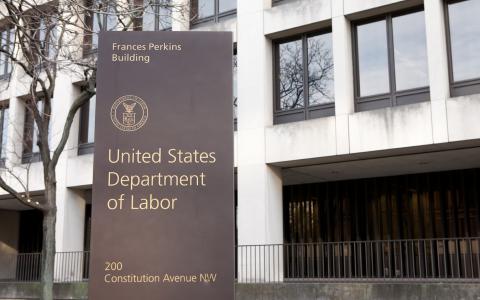
The Department of Labor’s fiduciary rule may have been delayed, but the cat is out of the bag about best interest standards across the industry — and state and federal regulators are likely to chime in this year, The Wall Street Journal writes.
DOL Is Not the Only Regulator Focused on Best Interest Standards
Despite parts of the fiduciary rule being delayed, consumers, state regulators and some in the financial advice industry have adopted its “best interest” principles, The Wall Street Journal writes. Others, however, claim the regulation reduces choice and limits access to advice for consumers, writes the publication.
Following Trump’s inauguration early last year, the Labor Department began a new analysis of the legislation, with White House National Economic Council Director Gary Cohn saying they “think it is a bad rule” in an interview at the time with The Wall Street Journal.
The DOL deferred the rule in March by 60 days—to June 2017—but Labor Secretary Alexander Acosta ruled out further delay citing “respect for the rule of law,” according to the publication. Key parts of the rule have now been postponed until July 2019, pending analysis and public comment, The Wall Street Journal writes. And while best-interest rules on retirement assets have been in effect since June 9, they are unenforceable due to the delayed provisions making it “very hard… to even bring a lawsuit,” Erin Sweeney, an attorney at Miller & Chevalier Chartered, tells the publication.
Despite this, many firms are complying with the rule, which has proven lucrative for them as customers move towards accounts with steadier annual fees away from more volatile variable commissions, The Wall Street Journal writes.
Executives say the rule has boosted revenue, with the amount put into fee-based accounts more than doubling at Bank of America’s Merrill Lynch and growing two-thirds at Morgan Stanley in the third quarter, the publication writes. “Fee-based, fiduciary models are the fastest growing areas of the industry,” Devin Ryan, managing director at JMP Securities LLC, tells The Wall Street Journal.
The fiduciary regulation is also causing brokers to leave Wall Street firms for RIAs, which have fiduciary obligations for all assets, according to the publication. Cerulli Associates estimates that independent advisors will control more assets than all the major brokerages combined by 2020, The Wall Street Journal writes.
Meanwhile, the governors of Nevada and Connecticut, as well as legislators in New York, New Jersey and Massachusetts, have introduced bills for fiduciary requirements, and 13 state treasurers wrote to Acosta asking to retain the regulation, according to the publication.
Some consider Nevada a test in expanding fiduciary obligations, The Wall Street Journal writes. But certain industry groups, such as the Securities Industry and Financial Markets Association, have questioned the state-by-state approach, saying it could violate an act of Congress designed to avoid “patchwork” financial regulation, according to the publication.
Preston Rutledge, assistant secretary of labor for the Employee Benefits Security Administration, wants the Treasury involved, as well as further cooperation between the Labor Department and other agencies on the fiduciary rule, Sweeney tells the publication. And despite its previous lack of involvement, it seems likely that the Securities and Exchange Commission will help shape the fiduciary rule after Chairman Jay Clayton showed new interest, according to The Wall Street Journal. But a finalized rule is unlikely before 2019, as SEC’s involvement would mean “more time” and “more complex[ity]” as it encompasses all types of investment accounts, Arjun Saxena, a partner at consulting firm PwC, tells tells the publication.



